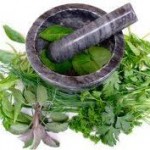Food allergy is an immune system response that takes place immediately once intake of a certain food. Even in a small quantity of the allergy-causing food can generate the signs and symptoms like enlarged airways or digestive problems. Food allergy can also cause serious indication that can lead to a life-threatening reaction known as anaphylaxis. Food allergy influence likely about 6 to 8 percent of children below 5 years of age and it’s about 3 to 4 percent in adults. While there is no really cure for food allergy in case of children, some of them just outgrow their food allergy as they grown-up. However, there are ways in food allergy treatment that can help to relieve or even help to prevent the symptoms of food allergy.
What are the symptoms of food allergy?
There are different allergic reactions to a specific food that people may encounter. For some, it may be uncomfortable but not that serious. For other people, it can be terrifying and even life-threatening. Symptoms of food allergy normally occur in about a few minutes to two hours after eating the food causing allergy. Food allergic reaction can take place even the first time intake of food. The most frequent symptoms of food allergy are the following.
- Itching or tickly feeling in the mouth
- Irritation, itching or eczema
- Inflammation of the face, lips, tongue and throat, or other areas of the body
- Wheezing, difficulty in breathing or nasal congestion
- Diarrhea, abdominal pain, nausea or vomiting
- Dizziness, or fainting
Food allergy in some people can generate a serious allergic reaction known as anaphylaxis. This can be a life-threatening condition for the affected person. Some of the dangerous symptoms are constraint and contraction of airways, inflamed throat or feeling of lump in the throat that makes it not easy to breathe, shock with an extreme fall in blood pressure, quick pulse, dizziness and loss of consciousness. These are the symptoms that need an immediate medical treatment since this may lead to coma or even death.
What are the causes of food allergy?
A chemical known as the histamine is the one liable for triggering allergic reaction. This histamine is being released by the immune system when the antibodies identify a definite food or substance as destructive by mistake.
The most common of food allergies are caused by certain proteins in the following foods.
- Shellfish like lobster, shrimp and crab
- Tree nuts like pecans and walnuts
- Peanuts
- Fish
- Eggs
The following foods are mostly causing allergies reaction triggered by proteins occur in children are.
- Milk
- Eggs
- Tree nuts
- Peanuts
- Wheat
What is the risk factors affecting food allergy?
There are risks factors affecting food allergy and these are some of the following.
- You are at greater risk of developing food allergies if eczema, asthma, allergies like hay fever runs in the family.
- Food allergy can be outgrown in children, but in some cases it comes back later in life.
- If you are already allergic to a certain food, you have greater possibility of becoming allergic to other food. The same with having other kinds of allergic responses like eczema or hay fever, the possibility of developing food allergy is at most higher.
- Food allergies are most frequent in children, particularly kids and infants. As you get older, your digestive systems also mature and your body is not that much to be expected to take in food or food contents that can cause allergies. Opportunely, children normally outgrow allergies to milk, wheat, soy and eggs. But extreme allergies and allergies to shellfish and nuts are more possibly to be lifetime.
- Food allergy and asthma frequently occur together. When they do, both symptoms of asthma and food allergy are more possibly to be serious.
What are the natural ways of food allergy treatment?
One of the most effective means to prevent food allergy reaction is to absolutely stay away from the food that triggers the symptoms. Some of the natural food allergy treatment may include the following.
1.    Do not presume.
 Always make it a practice to read food labels to be sure if it really do not contain the ingredient you are allergic to. Even if you are already used to eat that food, make it a point to always check the label because the ingredients at times change. Read the food labels at all times cautiously to avoid the most eight sources of food allergens like eggs, milk, peanuts, tree nuts, shellfish, fish, soy and wheat.
Always make it a practice to read food labels to be sure if it really do not contain the ingredient you are allergic to. Even if you are already used to eat that food, make it a point to always check the label because the ingredients at times change. Read the food labels at all times cautiously to avoid the most eight sources of food allergens like eggs, milk, peanuts, tree nuts, shellfish, fish, soy and wheat.
2.    Refuse to eat when hesitant.
 Attending a party or any social gatherings has always a risk that you may eat food that you are allergic to. If you have doubt of a served food that has ingredients you are allergic to, refuse to eat in a polite way than to feel sorry later on.
Attending a party or any social gatherings has always a risk that you may eat food that you are allergic to. If you have doubt of a served food that has ingredients you are allergic to, refuse to eat in a polite way than to feel sorry later on.
3.    Let the caregivers and relatives involved.
 Let the caregivers, other family members, baby sitters and teachers has knowledge of the food that may cause allergy to your child. Be sure that they are aware of how it is significant for your child to avoid the foods that may cause allergy to your child.
Let the caregivers, other family members, baby sitters and teachers has knowledge of the food that may cause allergy to your child. Be sure that they are aware of how it is significant for your child to avoid the foods that may cause allergy to your child.
4.    Intake of herbal remedies.
 There are small numbers of studies about the good benefit of taking herbal remedies in lessening the symptoms and preventing anaphylaxis. But there is still no consistent evidence that these herbal remedies really work. If you do want to try to take some herbal remedies, make sure to consult your doctor about it.
There are small numbers of studies about the good benefit of taking herbal remedies in lessening the symptoms and preventing anaphylaxis. But there is still no consistent evidence that these herbal remedies really work. If you do want to try to take some herbal remedies, make sure to consult your doctor about it.
These are all the natural ways of food allergy treatment that may help to avoid symptoms of food allergy. If in case there are instances that can not be avoided, make sure you know the emergency steps to take to relieve the symptoms of food allergy.
